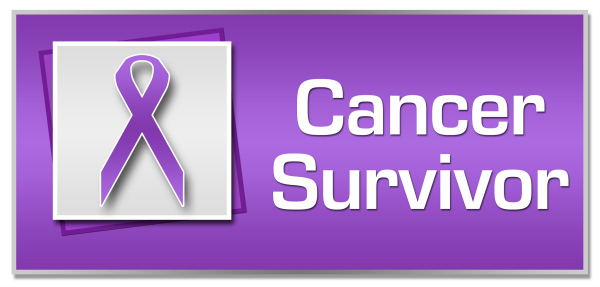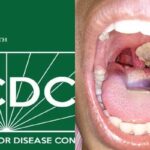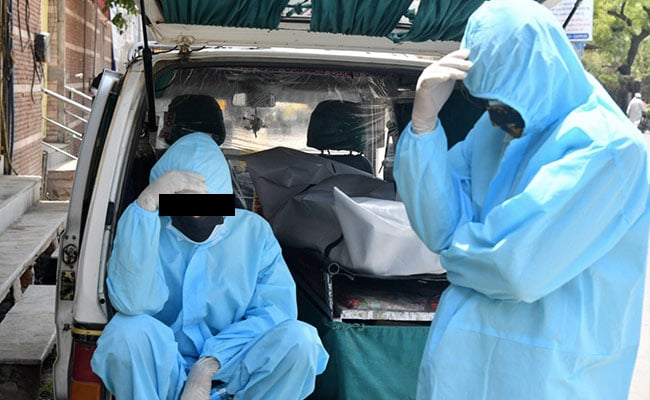Cancer Survivors in Nigeria Grapple with Formidable Challenges – Ebun Anozie

An In-depth Interview on the Struggles, Triumphs, and Initiatives to Combat Cancer in Nigeria
Cancer continues to cast a long shadow over Nigeria, where the loss of 72,000 lives annually to this devastating disease underscores the urgent need for comprehensive healthcare strategies. With an alarming 102,000 new cases diagnosed each year and a population exceeding 200 million, the emergence of complex diseases, particularly cancer, is reshaping the nation’s healthcare landscape. In this exclusive interview with Vanguard, Mrs. Ebun Anozie, the Executive Director of Cancer Care Organisation Enlightenment (C.O.P.E), delves into the multitude of challenges faced by Nigerian cancer patients and examines the factors contributing to the high mortality rate associated with this disease. Here are the key takeaways:
Cancer Mortality Factors
Breast Cancer’s Grave Toll
Breast cancer mortality rates remain alarmingly high in Nigeria, driven by a confluence of factors. These include limited access to medical care, widespread ignorance, religious beliefs, poverty, unhealthy lifestyles, lack of physical exercise, late-stage disease presentation, and entrenched taboos. Addressing these multifaceted issues demands a concerted effort from all stakeholders.
Survival Challenges
Surviving cancer in Nigeria is an arduous journey, complicated by the fact that many individuals present with advanced-stage cancer. The cost of cancer treatment in Nigeria is substantial, with even the most affordable option starting at N2.5 million, depending on the disease’s stage. Shockingly, statistics reveal that approximately 80% of Nigerians lack access to health insurance, leaving them without crucial coverage for cancer treatment. To bolster the chances of survival, the nation must rally together to address these financial and logistical hurdles.
Rising Incidence Among the Young
Cancer is increasingly affecting younger individuals in Nigeria, a trend partly attributed to genetic predispositions and the surge in sedentary lifestyles and unhealthy dietary habits. While certain genetic mutations, such as BRCA1 and BRCA2, elevate the risk of specific cancer types, it’s crucial to note that most cancer cases are not directly linked to genetics. A healthy lifestyle, including a balanced diet, avoidance of tobacco and alcohol, sun protection, and adherence to recommended screenings, plays a vital role in cancer prevention.
Misdiagnosis in Cancer Treatment
Early detection and appropriate interventions are pivotal for effective cancer treatment. Misdiagnosis remains a significant issue, particularly in breast cancer cases. However, dedicated organizations like C.O.P.E employ state-of-the-art equipment for breast screening, staffed by qualified and experienced healthcare professionals. Occasional lapses, although rare, are taken seriously, with comprehensive reviews conducted to ensure the highest standards of care.
C.O.P.E’s Role in Cancer Screening
C.O.P.E plays a critical role in providing women with subsidised and/or free breast ultrasound scan screening services to detect lumps or abnormalities. In cases where abnormalities are detected, patients are advised to consult their personal physicians or diagnostic centers for further evaluation and testing. C.O.P.E has been at the forefront of the fight against breast cancer in Nigeria for over 28 years, thanks to the support of generous partners and individuals.
Treatment Affordability Challenges
The cost of cancer treatment in Nigeria is exorbitant, making it a formidable challenge for many patients. Comprehensive health insurance is strongly recommended to alleviate the financial burden. Early-stage diagnosis significantly reduces treatment costs, underlining the importance of proactive health management and timely screenings.
The Quest for Comprehensive Cancer Treatment Centers
Efforts to address the cancer crisis have resulted in the establishment of several comprehensive cancer treatment centers in Nigeria. However, challenges persist, including the ongoing issue of “medical tourism” as healthcare professionals seek better opportunities abroad. To retain top talent, the government must undertake measures to improve remuneration, career prospects, and living standards for healthcare workers.
Radiotherapy Constraints
While Nigeria boasts several radiotherapy centers, their functionality is hindered by challenges such as inadequate numbers of operational machines and an unreliable power supply. Addressing these issues is vital to ensure effective cancer treatment across the nation.
Forex Scarcity Impact
The scarcity of foreign exchange affects patients’ ability to afford prescribed medications. Partners like Variant Advisory and SKLD have provided crucial financial support to cancer survivors, helping them access essential treatments.
Healthcare Accessibility and NHIA
Healthcare accessibility remains a critical issue in Nigeria. The National Health Insurance Authority (NHIA) previously did not cover key treatments for severe illnesses like breast cancer. This prompted families to sell assets to fund treatments. Collaboration between organizations like the Nigerian Cancer Society and the federal government has been instrumental in addressing these challenges. Access to affordable healthcare should be a priority to improve the well-being of all Nigerians.
Message for the New Health Minister
Mrs. Ebun Anozie extends congratulations to Dr. Muhammad Ali Pate, the new Health Minister, and looks forward to collaborating with him and the Ministry of Health to reduce breast cancer mortality rates and enhance healthcare access for all Nigerians.
C.O.P.E After Two Decades
For over 28 years, C.O.P.E has tirelessly worked to empower women to prioritize their health and recognize the critical role of early detection in the battle against breast cancer. The organization adopts the SCREEN framework (Screening, Counselling, Referrals, Education, Enlightenment, and Nurturing) to raise breast cancer awareness among Nigerian women and girls. C.O.P.E provides emotional support, financial assistance, and maintains a robust support group to uplift survivors and enhance their quality of life. The message is clear: “HOPE with COPE,” ensuring that survivors find hope in their journey and have the necessary coping mechanisms to navigate the challenges they face.
Breast Cancer Awareness Month
With October designated as Breast Cancer Awareness Month, C.O.P.E strongly urges women to take advantage of their free and subsidized breast screening services. The organization’s mission remains steadfast: to detect breast cancer at its earliest stages, resulting in more cost-effective treatment options and significantly improved survival rates for women in Nigeria.
In closing, the battle against cancer in Nigeria is ongoing, and with continued dedication, support, and awareness, the nation can make meaningful strides towards reducing the impact of this relentless disease on its citizens.



